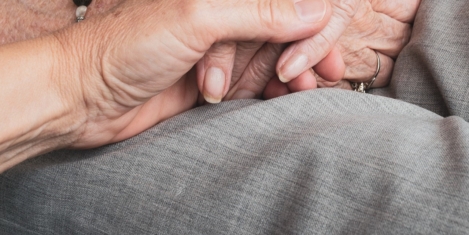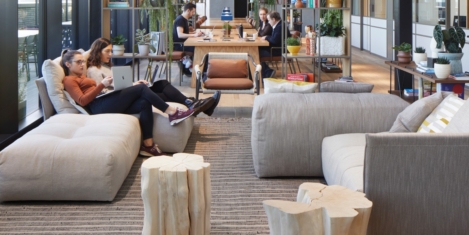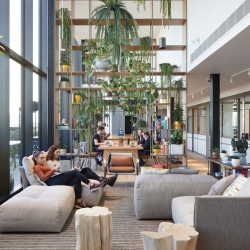To provide the best experiences, we use technologies like cookies to store and/or access device information. Consenting to these technologies will allow us to process data such as browsing behaviour or unique IDs on this site. Not consenting or withdrawing consent, may adversely affect certain features and functions.
The technical storage or access is strictly necessary for the legitimate purpose of enabling the use of a specific service explicitly requested by the subscriber or user, or for the sole purpose of carrying out the transmission of a communication over an electronic communications network.
The technical storage or access is necessary for the legitimate purpose of storing preferences that are not requested by the subscriber or user.
The technical storage or access that is used exclusively for statistical purposes.
The technical storage or access that is used exclusively for anonymous statistical purposes. Without a subpoena, voluntary compliance on the part of your Internet Service Provider, or additional records from a third party, information stored or retrieved for this purpose alone cannot usually be used to identify you.
The technical storage or access is required to create user profiles to send advertising, or to track the user on a website or across several websites for similar marketing purposes.
 New research from Trainline Partner Solutions (TPS) claims Covid-19 will usher in a new era of sustainable business travel. The vast majority of business travellers (75 percent) want to reduce their reliance on air travel for business because of the impact it has on the environment. (more…)
New research from Trainline Partner Solutions (TPS) claims Covid-19 will usher in a new era of sustainable business travel. The vast majority of business travellers (75 percent) want to reduce their reliance on air travel for business because of the impact it has on the environment. (more…)





 Almost half (47 percent) of employers report having vacancies that are hard-to-fill, and more than one in four (27 percent) expect the number of vacancies that are difficult to fill to increase in the next six months. This is a key finding of the latest quarterly
Almost half (47 percent) of employers report having vacancies that are hard-to-fill, and more than one in four (27 percent) expect the number of vacancies that are difficult to fill to increase in the next six months. This is a key finding of the latest quarterly 
 According to
According to 
 The brains behind
The brains behind 
 Manchester’s office market could see a boost thanks to its 22,850 SME businesses says
Manchester’s office market could see a boost thanks to its 22,850 SME businesses says 
 Hybrid working could save the NHS more than £4 billion per year by giving workers more time to look after themselves and their families, according to a new study by
Hybrid working could save the NHS more than £4 billion per year by giving workers more time to look after themselves and their families, according to a new study by 


 The 2021 Digital Etiquette Study by
The 2021 Digital Etiquette Study by 
 Hiding the bottom half of the face with a mask could have a detrimental effect on our ability to socially interact and share other people’s emotions, new research suggests. A
Hiding the bottom half of the face with a mask could have a detrimental effect on our ability to socially interact and share other people’s emotions, new research suggests. A 
 The World Green Building Council (
The World Green Building Council (
 According to a
According to a 
 The workplace power dynamic has shifted in favour of employees, according to a new study released from BCW in partnership with Workplace from Facebook (now Meta of course). The inaugural
The workplace power dynamic has shifted in favour of employees, according to a new study released from BCW in partnership with Workplace from Facebook (now Meta of course). The inaugural 






